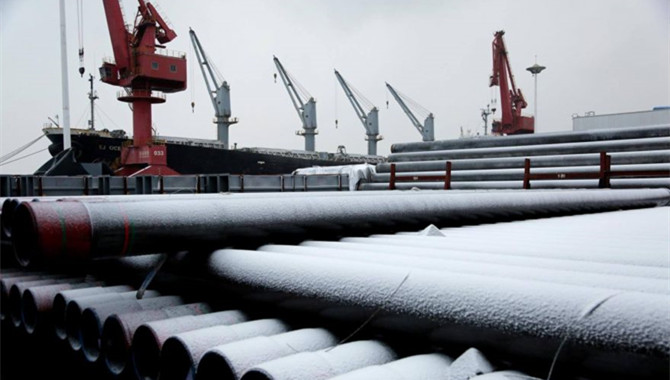In a bid to reduce steel output and thereby tackle problems related to pollution levels, China has announced some policy changes that can redefine the steel landscape of the country. The government has annulled the export tax rebate for some steel products. Also, it has cancelled import tariffs for several products including pig iron, crude steel, recycled steel raw materials, and more.
In 2020, China's share of global crude steel production increased to 56.5 percent from 53.3 percent in 2019. Despite the COVID-19 outbreak when the industry's global growth prospect saw a collapse, China recorded an increase in crude steel production by 5.2 percent, touching the 1,053 million tonnes mark. Owing to this, the government recently announced changes to its policies in its long efforts since 2017 to reduce steel output and curb the problems that come with higher production.
“Although the volatility in demand and production levels caused by the COVID-19 outbreak began to subside in the second half of 2020, the crisis resulted in governments keeping a watchful eye on the steel sector. This is especially applicable in China where the crude steel production levels breached a billion tons and increased by 5% Y-o-Y despite the outbreak in 2020,” said Srivatsan Govindarajan, Research Analyst, Metals and Mining. “In order to mitigate any potential problems of overcapacity and reduce the steel production levels, the Chinese government has introduced several initiatives in the form of import and export duty reforms,” he added.
One of the policy changes includes cancelling steel export rebate rates from several steel products from May 1st, 2021. Earlier, this rate was 13 percent, affecting steel products with codes 7205-7307, including stainless steel, wire rod, hot rolled and cold rolled sheet. The move will reduce exports and subsequently the domestic steel production levels. It may also redirect the additional volume from exports to the domestic market, bringing downward pressure on high steel prices. China is a net exporter of steel; it exported nearly 53.7 million tonnes of steel in 2020. By removing the rebate rate, which is expected to affect 95 percent of the total exports, it hopes to bring down steel production.
The second policy change includes cancelling import tariffs for crude steel, pig iron, recycled steel raw materials, ferrochrome, and other products. It took effect from May 1st, 2021. The aim of this is to make imports of metallics like pig iron and hot briquetted iron cheaper. Since steel mill pricing in China is highly reliant on imported iron ore and they are vulnerable to the rising iron ore prices, this policy change is expected to minimize this level of reliance and promote cleaner steelmaking in the country. The policy also underlines the government's efforts to keep steelmaking raw materials within the country instead of exporting them to other countries.
“Both the policy changes will benefit China in the short and long-term. Collectively, it will support the supply when the country cuts steel output. It will also reduce total power consumption and carbon emission. Cancelling the steel export rebate rate will very likely drop the domestic prices in the latter quarter of 2021. The export will fall off as well in the long-run,” said Arun Vijayan, Team Lead — Metals, Minerals and Mining at Beroe. “The new trade tax regime in China will certainly shift the steel landscape in the country. It will reduce steel production and also control the historically high prices to an extent.”
Source: Beroe Inc.
The opinions expressed herein are the author's and not necessarily those of The Xinde Marine News.
Please Contact Us at:
media@xindemarine.com


 Ningbo Containerized Freight Index Weekly Commentar
Ningbo Containerized Freight Index Weekly Commentar  Ningbo Containerized Freight Index Weekly Commentar
Ningbo Containerized Freight Index Weekly Commentar  Ningbo Containerized Freight Index Weekly Commentar
Ningbo Containerized Freight Index Weekly Commentar  BIMCO Shipping Number of the Week: Bulker newbuildi
BIMCO Shipping Number of the Week: Bulker newbuildi  Ningbo Containerized Freight Index Weekly Commentar
Ningbo Containerized Freight Index Weekly Commentar  Ningbo Containerized Freight Index Weekly Commentar
Ningbo Containerized Freight Index Weekly Commentar